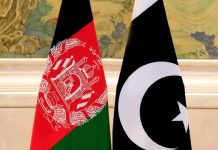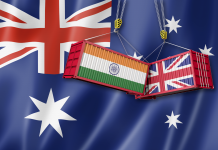MELBOURNE, January 29 (Majid Khan): Australian Sikhs, along with millions of others around the world, will vote on January 29 in a referendum to establish a separate Sikh state in India, Australian Broadcasting Corporation (ABC) posted on its website.
Ravi Inder Singh, a representative of the Miri Piri Gurudwara (Sikh temple), told Australian media that the voting exercise, known as the Khalistan referendum, would be a significant step towards self-determination for millions of Sikhs around the world.
Sikhs have faced increasing discrimination in India, especially with the growth of Hindu nationalism. In 1984, thousands died in communal violence, after the assassination of then prime minister Indira Gandhi, it added.
Singh said the main goal of the referendum was to seek a consensus among Sikhs to establish a separate homeland within India and to determine the extent of the demand for this separatist state that would be known as Khalistan (land of the pure), SBS Punjabi, an Australian news outlet quoted him as saying. Voting for the referendum, which began in October 2021, has so far taken place in the UK, Switzerland, Italy and Canada.
At a press conference in Melbourne on Wednesday, SFJ co-founder and legal adviser Gurpatwant Singh Pannun said the Indian government was seeking to “criminalize” attempts by Sikhs to demand an independent state. They called the referendum in Haristan illegal and an act of terrorism, he added.
Media reports say Australia is home to around 209,000 Sikhs, or 0.8% of the total population, making it the fifth largest and fastest growing country in the country, according to the 2021 Census. It’s a religious group.
SBS, in its comments on Australia’s Haristan referendum, quoted a Department of Foreign Affairs and Trade (DFAT) spokesperson as saying that Australia respects diversity and inclusion, respects the right of individuals to protest peacefully, He said he supports non-violent expression. . Regarding Haristan, the SFJ had proposed to do this by dividing the northern Indian states of Punjab, parts of Haryana and Himachal Pradesh, and some districts of Rajasthan and Uttar Pradesh.






